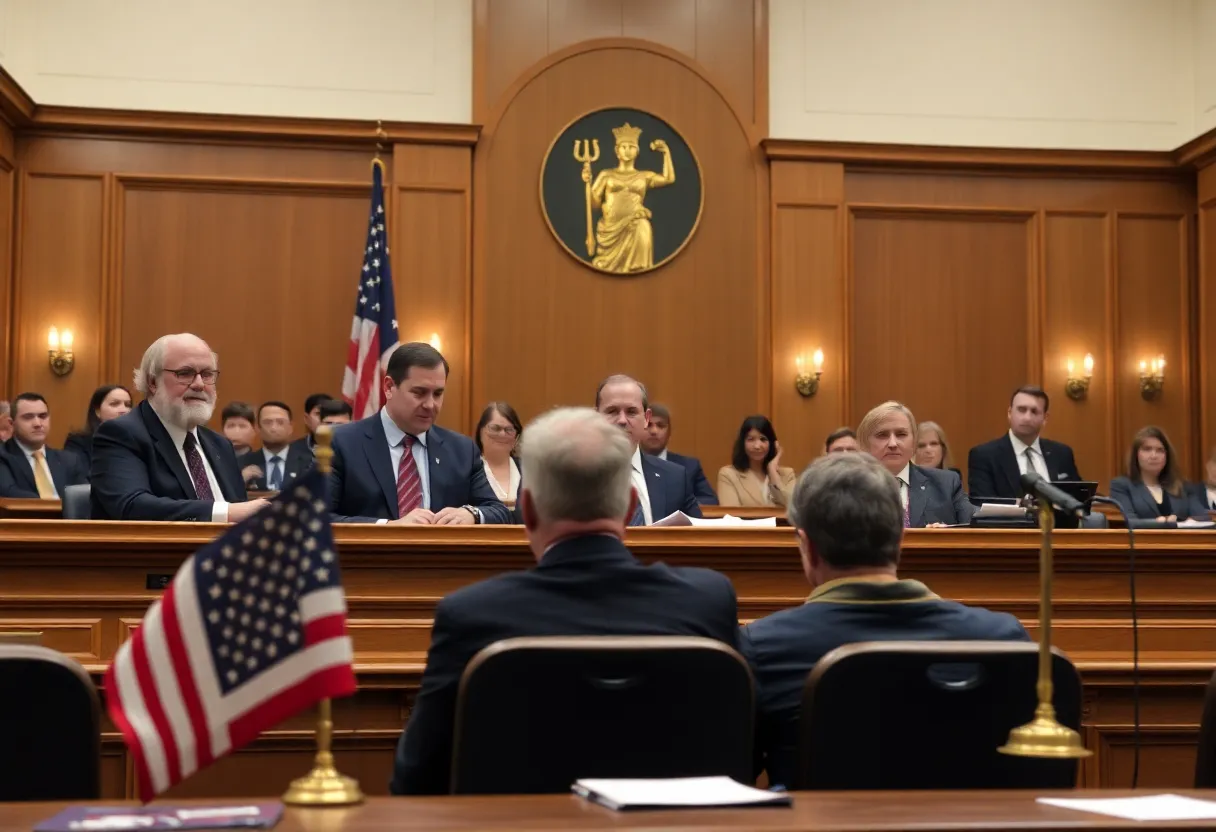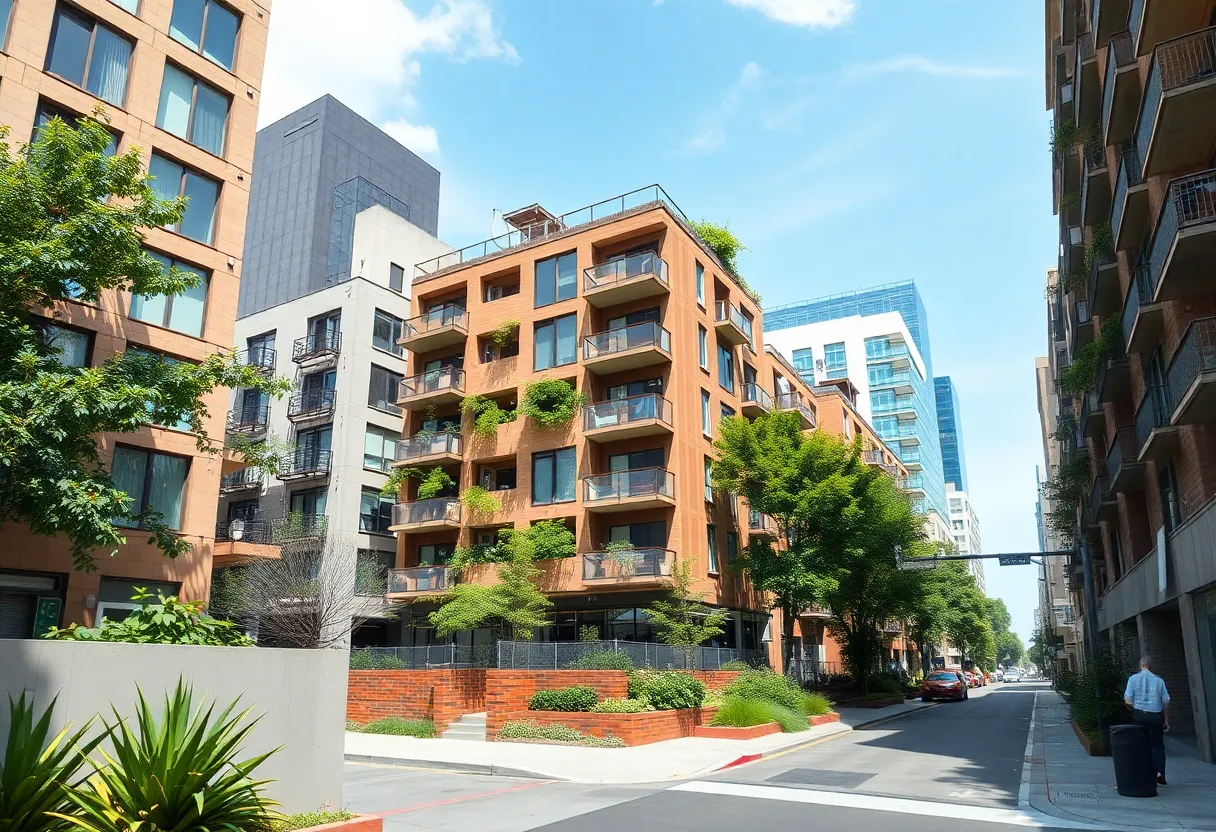News Summary
A growing trend of grand juries in Los Angeles rejecting protest-related indictments raises concerns about U.S. Attorney Bill Essayli’s effectiveness. Despite pressures for aggressive prosecutions, many cases associated with immigration raids are being dismissed or reduced to misdemeanors. Legal experts express alarm over low indictment rates, questioning the viability of the presented cases. Criticism from Democratic Senators adds to the skepticism surrounding Essayli’s leadership as the office faces mounting scrutiny amid ongoing lawsuits challenging immigration enforcement practices.
Los Angeles, CA – A significant number of protest-related cases facing indictment are being rejected by grand juries in a trend that raises concerns about the effectiveness of U.S. Attorney Bill Essayli’s office. Recently, it was reported that Essayli was overheard expressing frustration when a grand jury declined to indict a suspect alleged to have attacked federal law enforcement officers during protests against immigration raids. This refusal is notable, as it is an exceedingly rare occurrence for a grand jury hearing, which typically leads to the filing of federal charges.
Under the leadership of U.S. Attorney Essayli, who is 39 years old, there has been pressure on prosecutors to secure indictments, even as several lawsuits challenge their practices. Allegedly, he has directed his subordinates to disregard the Justice Manual’s guidelines, which advise prosecutors to pursue only cases they can reasonably expect to win at trial. This pressure aligns with the directive from U.S. Attorney General Pam Bondi, who is advocating for more aggressive prosecution of protest-related incidents.
To date, at least 38 individuals have faced felony misconduct charges in connection with protests and immigration raids. However, many of these charges have since been dismissed or reduced to misdemeanors, leading to a total of only seven indictments. Specifically, five cases have been dismissed without prejudice—allowing for potential re-filing—and nine others have been submitted as misdemeanors, which do not require grand jury indictments.
Prosecutors have encountered significant challenges in convincing grand juries of the probable cause necessary for indictments, despite this standard being lower than the “beyond a reasonable doubt” requirement needed for a criminal conviction. Legal experts have expressed alarm at the low indictment rates, raising questions about the strength and viability of the cases being presented by Essayli’s office.
The disconnect between the priorities of the U.S. Attorney’s office and those of the community it serves has been underscored by former federal Prosecutor Carley Palmer. Concerns regarding the reliability of federal immigration agents’ testimonies, who frequently serve as victims in these cases, have also emerged. There have been multiple instances where charges were dismissed due to inaccuracies in agents’ statements.
Several notable cases illustrate the issues facing the prosecution. For instance, Javier Diaz Santana, who is deaf, was reportedly unable to communicate while he was handcuffed during an immigration raid. Similarly, charges against Jose Mojica were dropped after social media evidence emerged that contradicted claims made by a federal officer. Discrepancies in the officer’s account in Andrea Velez’s case also led to charges being dismissed. In another case, Adrian Martinez faced conspiracy charges to impede a federal officer despite video evidence refuting the allegations against him.
Critics of Essayli’s handling of these contentious cases have pointed out that typically only he and a small number of senior officials have been signing these charges, suggesting a hesitance among lower-ranking prosecutors to associate themselves with cases that may lack sufficient evidence. This has led to worries about the pressure on prosecutors within the office to align with Essayli’s directives for charging decisions.
Amid mounting skepticism regarding Essayli’s leadership effectiveness, Democratic Senators Adam Schiff and Alex Padilla have publicly questioned the U.S. Attorney’s capability to lead such sensitive cases. With a looming deadline for prosecutors to secure additional indictments by August 5, the pressure is intensifying, especially as several high-profile cases appear unlikely to succeed in front of grand juries.
In addition to the challenges faced by protest-related prosecutions, ongoing legal disputes include lawsuits challenging the legality of Immigration and Customs Enforcement (ICE) practices during recent immigration raids in Southern California. Organizations like the ACLU have initiated a class action lawsuit against the Trump administration, asserting violations of constitutional rights through unlawful detention and arrest practices. The lawsuit highlights the need for due process rights amidst increasingly aggressive immigration enforcement actions.
As scrutiny on U.S. Attorney Bill Essayli’s office increases, the outcomes of these cases may impact the broader legal landscape around protest actions and immigration enforcement in California and beyond.
Deeper Dive: News & Info About This Topic
HERE Resources
Ventura Man Indicted for Selling Fraudulent Aircraft Parts
Additional Resources
- Los Angeles Times: Protester Charges and U.S. Attorney Essayli
- Wikipedia: Grand Jury
- The Guardian: Los Angeles Trump Protests
- Google Search: Trump Protests Los Angeles
- Courthouse News: ACLU Sues Trump Administration
- Google Scholar: Immigration Raids California
- New York Times: LA Protests and National Guard
- Encyclopedia Britannica: Immigration Law
- Democracy Docket: Judge Trump Federalize California National Guard
- Google News: National Guard California

Author: STAFF HERE HOLLYWOOD
The Hollywood Staff Writer represents the experienced team at HEREHollywood.com, your go-to source for actionable local news and information in Hollywood, Los Angeles County, and beyond. Specializing in "news you can use," we cover essential topics like product reviews for personal and business needs, local business directories, politics, real estate trends, neighborhood insights, and state news affecting the area—with deep expertise drawn from years of dedicated reporting and strong community input, including local press releases and business updates. We deliver top reporting on high-value events such as the Hollywood Bowl summer concerts, the Hollywood Christmas Parade, film premieres at TCL Chinese Theatre, and festivals at the Magic Castle. Our coverage extends to key organizations like the Hollywood Chamber of Commerce and Visit Hollywood, plus leading businesses in entertainment, dining, and tourism that define the local economy. As part of the broader HERE network, including HERELosAngeles.com, HEREBeverlyHills.com, HEREAnaheim.com, and HEREHuntingtonBeach.com, we provide comprehensive, credible insights into Southern California's dynamic landscape.





